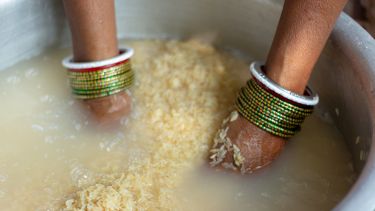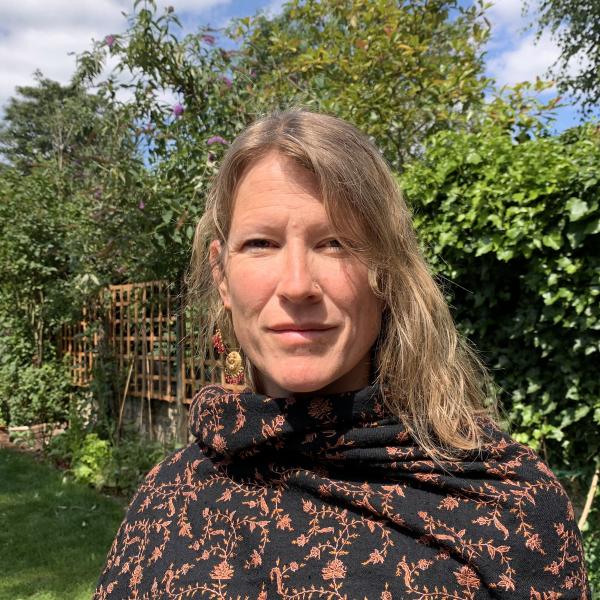- University of Sheffield scientists successfully grow a lost variety of rice in and are developing types that can thrive in an increasingly extreme modern climate
- Academics collaborate with communities in Rampur to revive loved and lost recipes
- Forgotten Food project draws on oral histories and archival sources for a new recipe collection, inviting the public to try the lost rice at a Rampur Food Festival in 2022
- The project received a UK Research and Innovation grant from the Global Challenges Research Fund for contributing to the Sustainable Development Goals of the United Nations
A team of scientists is growing a type of rice from India that had become extinct with the spread of higher-yielding types, as part of a project to revive recipes and flavours that have been lost.
Historians and plant scientists at the University of Sheffield’s Institute for Sustainable Food are collaborating with colleagues at the University of Delhi, University of York, University of Toronto, New York University, the Rampur Raza Library and partners in north India for the pioneering ‘Forgotten Food’ project.
Drawing on oral histories and historic cookbooks, they have identified once-loved rice varieties that are no longer grown. One heritage crop is already flourishing on a farm outside of Rampur in preparation for its first harvest. Another crop will soon be grown in a controlled-environment, or 'virtual rice paddy', so scientists can assess the effect of modern pathogens on the revived plants. The scientists incorporate the extinct flavours and characteristics into plants that will survive and thrive in an increasingly extreme climate, while also delivering the high yields and nutrients required by an ever-expanding population.
Alongside a monthly column in the Indian press, the project will also produce a collection of historic recipes from archival sources available to contemporary cooks and an anthology of creative writing on South Asian food and cultural practices. Desi Delicacies: Food Writing from Muslim South Asia will be released by Picador in January 2021, and includes essays, short stories and recipes. There will also be a series of documentaries filmed highlighting culinary memories through traditions of spoken word and oral history.
Forgotten Food will culminate with the Rampur Food Festival in October, 2022 - a two-day event hosted by the Rampur Raza Library, where the once-extinct varieties of rice will be cooked to recipes in Urdu and Persian manuscripts from the royal court of the Rampur Nawabs.
In the late nineteenth century, the Rampur court was known for its patronage of an important cultural festival, the Jashn-e-Benazir, featuring poetry, music and food. The event brought different social classes and communities together in the shared space of bazaar culture.
The Rampur Food Festival will build on this model, bringing heritage food to street stalls to highlight its popularity and affordability, and support the livelihoods of local cooks, street vendors and artisans. The festival will also showcase other partnership outputs, including performances of dastangoi – traditional story-telling – a historic recipe collection making material from archival sources available to contemporary cooks and documentaries highlighting culinary memory through oral history.
“This project is about reviving and sharing the historic recipes at the core of Muslim culinary heritage in India, and helping to tackle hunger with the foods local people want to eat.
“By introducing younger generations to the rice varieties and flavours enjoyed by their ancestors, we hope to invigorate local economies in Rampur, creating new opportunities for street vendors and encouraging tourism.
“Food also has tremendous power to bring people together, so by supporting communities to restore their shared heritage, this project has the potential to bring different groups together to counter tension and violence.”
Professor Siobhan Lambert-Hurley
Professor of Global History at the University of Sheffield
Media contact: Rebecca Ferguson, Media Relations Officer, r.l.ferguson@sheffield.ac.uk or 0114 222 3076




